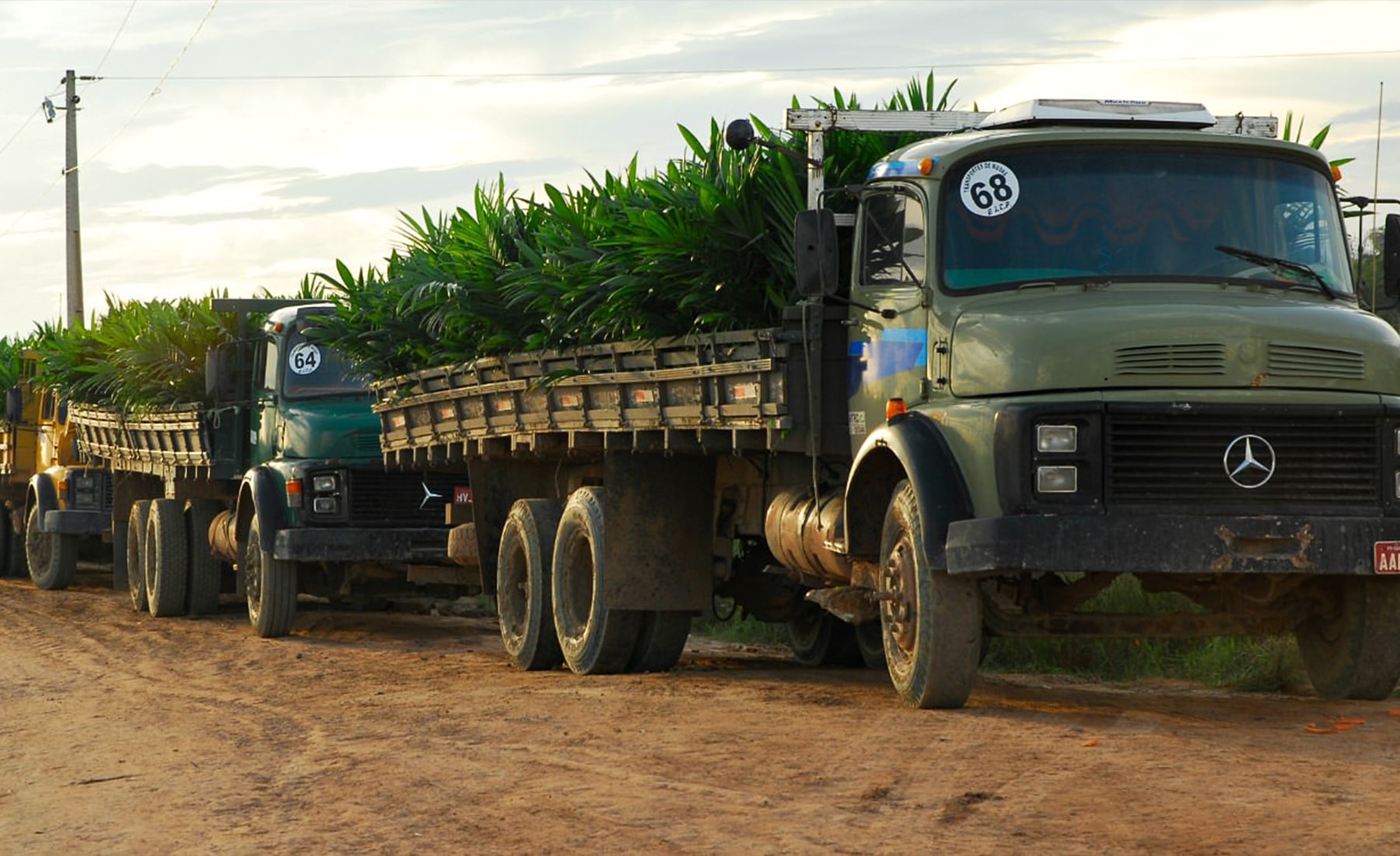
Let’s not be blinkered about palm oil
Campaigners who have focused on the role of the palm oil industry in driving deforestation could be forgiven for feeling rather pleased with themselves. In recent months there has been a dramatic surge in the willingness of major corporate buyers and producers of palm oil to step forward with public commitments to eliminate deforestation from their supply chains in what Unilever CEO Paul Polman has described as a “welcome race to the top”.
After over a decade of campaigning by environmental NGOs, concerted efforts by key industry players and increasing interest from government policymakers, it would seem that a genuine turning point may have been reached. Major palm producers and traders including Wilmar, Golden-Agri Resources and Cargill, have pledged their support for the New York Declaration on Forests and made commitments to implement policies on ‘no deforestation’ and ‘no peat’ throughout their entire palm oil supply chains. Major consumers of palm oil, including Kellogg, Mondelez and General Mills, who had hitherto lacked the type of public commitments made by trailblazers such as Unilever, have committed to source all of their palm oil from fully traceable, responsible sources.
Many of these companies’ commitments have relatively short timescales given the size and complexity of the supply chains involved. Wilmar expects all of its suppliers to be fully compliant with all aspects of its ‘No deforestation, no peat, no exploitation’ policy for palm oil sourced from new areas by 31 December 2015. Unilever has pledged that in five years’ time (2020), all of its palm oil – around 3% of total global consumption – will be from certified, traceable sources.
So, is this the end of the debate? Have the environmental campaigners finally overcome their bête noire? Not yet. Undoubtedly significant progress has been made, but major challenges remain.
Implications of market dynamics
The major buyers and consumers of palm oil who have committed to sustainable sourcing practices directly manage very little palm oil production themselves. For example the agribusiness giant Wilmar is responsible for processing around 35% of global palm oil and is one of the largest owners of oil palm plantations, the majority of which are in Indonesia. However, plantations directly managed by Wilmar only account for around 3% of Indonesia’s palm oil plantations. In common with most of the other major corporates that dominate the palm oil industry, the majority of the palm oil processed by Wilmar is sourced from independent suppliers.
The structure of the supply chain matters because how those at the ‘front line’ – palm oil plantation owners – respond to deforestation concerns will be heavily influenced by what the markets demand. And palm oil is a truly global commodity. The two largest markets for palm oil are India and China, representing 20% and 16% of global trade respectively. With demand for palm oil expected to triple between 2000 and 2050, fuelled by growth in the world’s emerging economies, the importance of these markets to the palm oil industry is only likely to continue to grow.
Europe and North America lead on palm oil risks – will other regions follow?
To date, industry action on palm oil has been primarily driven by consumer-facing companies in Europe and North America responding to targeted and sustained NGO campaigns. However, the structure of the palm oil supply chains and the demands of consumers in emerging economies are markedly different. Emerging markets are highly price sensitive and focused on growth rather than sustainability standards. A recent study also found that Indian companies tend to be more removed from their suppliers than their western counterparts and therefore have less leverage over the source of their palm oil.
The likely impact of the public sourcing commitments made by western consumer brands will be the consolidation of their palm oil supply chains. Companies who have made commitments to only source RSPO-certified or ‘zero deforestation’ palm oil will apply stringent criteria to the vetting of potential suppliers, and may seek to secure longer term access to trusted suppliers to ensure that they avoid brand-damaging criticism for failing to meet stated targets.
Palm oil producers who cannot demonstrate compliance with these deforestation or certification standards will find themselves unable to access the supply chains of western consumer brands. On the face of it, this might seem a good thing. However, the producers most able to demonstrate compliance and afford certification costs will tend to be commercial operators with mature, established plantations. Typically, these are not the same plantations that are expanding into forest or peat areas. The risk is that western buyers’ current sourcing commitments could remove incentives for producers deemed ‘less sustainable’ to change their practices. The probability of this risk is further increased by the growing influence of palm oil markets that don’t have the same demands as the western corporate market.
Palm oil as a driver of socio-economic development
Largely missing from the current debate on palm oil and deforestation is any consideration of the potential positive role that palm oil can have as a driver of economic and social development.
The majority of palm oil producing countries are middle-to-low income economies. Clearly palm oil is not the only option for socio-economic development in any country, but in many countries it has the potential to be a significant contributor. In Indonesia palm oil accounted for 11% of total export earnings in 2012, second only to oil and gas, and generated $5.7bn in export taxes for the government. In a country that currently ranks 108 on the UN’s Human Development Index, the revenues that the palm oil industry generates are badly needed. The countries that are emerging as future palm oil producers, such as Liberia, are amongst the poorest countries in the world and can be forgiven for wanting their own stall in the global palm oil marketplace.
As with any natural resource-based development activity, this is not without its risks and challenges, not least deforestation. However, it is important to recognise that one of, if not the biggest, root cause of deforestation is poverty. Deforestation is not just about big businesses sending in the chainsaws and bulldozers to raze acres of rainforest to the ground. Arguably much more significant is the gradual degradation and ‘nibbling away’ at the forest edges as poor, rural farming communities seek to eke out a living from the land.
From a development perspective there is a strong argument for supporting responsible, carefully planned palm oil production. For farmers, palm oil production can be financially rewarding. A study in Sumatra, Indonesia, found that smallholder farmers producing palm oil earned around 12 times the average farm income in the region. It is unsurprising, therefore, that of the approximately eight million hectares of palm oil plantations in Indonesia, just over three million hectares are smallholder plantations. In African countries, where palm oil production is less widespread, development NGOs have lauded palm oil as a ‘blockbuster crop’ because of its ability to lift farmers out of poverty with proper management and market linkages.
Moving forwards
The public commitments that many companies have made to responsibly source palm oil deserve to be commended, as do the campaigners who have fought tirelessly to get things to this stage. The debate now needs to become more sophisticated and inclusive.
Stakeholders will need to work together to make sustainable palm oil production the norm, rather than the preserve of a relatively small proportion of the global market. This will require clear-headed acknowledgement of market realities and perhaps sacrificing some lofty ideals in order to achieve a greater overall impact – not letting the perfect be the enemy of the good.
The potential for palm oil to lift people out of poverty deserves more attention. More focus is needed on opening opportunities for smallholder farmers. A number of companies in the industry already have smallholder programmes – the challenge is to achieve scale. Campaigners have a responsibility to understand industry dynamics and recognise trade-offs, for example relating to certification targets. International development agencies could work more effectively with companies and civil society than they do at present.
It will not be easy, but the potential benefits to both people and the planet of a sustainable global palm oil industry surely deserve the effort.

